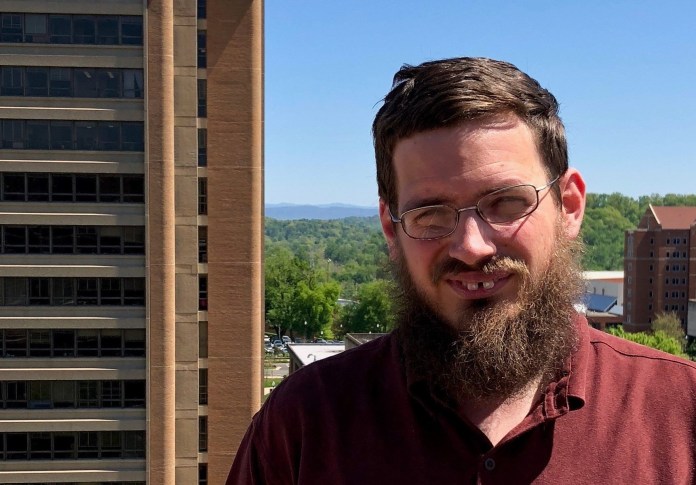Marlin Sommers recently defended his dissertation “Participating with the Known and the Value of Craft as Knowing” at the University of Tennessee-Knoxville. His philosophical research is in epistemology. He also has an active interest in the philosophy and theology of work and business.
What topic do you think is under explored in philosophy?
Knowing. No, that is not a typo! There is certainly no shortage of attention given to the question of which beliefs count as knowledge. However, we have much less attention to the question of how to go about achieving knowledge or to questions concerning the nature of the relation between the knower and the known. Esther Meek’s Loving to Know was formative for me in opening up these latter questions. She also pointed me to some of the work of Michael Polanyi which focuses on these sorts of epistemological questions.
If you could wake up tomorrow with a new talent, what would you most like it to be?
Well if I could wake up tomorrow well on the way to competence in Latin and in Hebrew, that would be pretty sweet. My only foreign language competence is Greek (Attic and Koine) along with a smattering of French.
What is your favorite holiday and why?
I’d go with Thanksgiving or Easter. Both concern extremely important themes, and both exhibit more coherence between what they are supposed to celebrate and their actual practices than is the case with a lot of other holidays.
Which books have changed your life? In what ways?
I will list three. I read The Divine Conspiracy by Dallas Willard in my mid-teens. It helped me see Christianity in full color, as it were, rather than just in black and white. He also emphasized for me the role that big and seemingly distant ideas play in life, which helped push me toward philosophical thought. In my undergraduate years David DiQuattro introduced me to the work of Alasdair MacIntyre including Three Rival Versions of Moral Enquiry. I was already a philosophy major, but this renewed my enthusiasm and helped steer me toward graduate school. And, I already mentioned it, but Meek’s Loving to Know pointed me toward the types of epistemological exploration I am now engaged in.
What’s your favorite quote?
A writer is someone who wrote today.
I don’t know where it comes from, but it stuck, along with a handful of other writing maxims.
Writing is thinking.
Writing is rewriting.
The last two I emphasize to undergraduates in my writing intensive courses. And then there are a couple that I claim just a bit of originality for.
Drafted is better than perfect.
And
Writing is vomiting.
This last one is for those days when I am having trouble getting anything on the page because I know the words coming to mind aren’t quite what I want to say. I just have to let them out, painful as that can be.
What’s your poison?
Coffee.
This section of the APA Blog is designed to get to know our fellow philosophers a little better. We’re including profiles of APA members that spotlight what captures their interest not only inside the office, but also outside of it. We’d love for you to be a part of it, so please contact us via the interview nomination form here to nominate yourself or a friend.
Skye C. Cleary PhD MBA is a philosopher and author of How to Be Authentic: Simone de Beauvoir and the Quest for Fulfillment (2022), Existentialism and Romantic Love (2015) and co-editor of How to Live a Good Life (2020). She was a MacDowell Fellow (2021), awarded the 2021 Stanford Calderwood Fellowship, and won a New Philosopher magazine Writers’ Award (2017). She teaches at Columbia University and the City College of New York and is former Editor-in-Chief of the APA Blog.








Thank you for a great advice